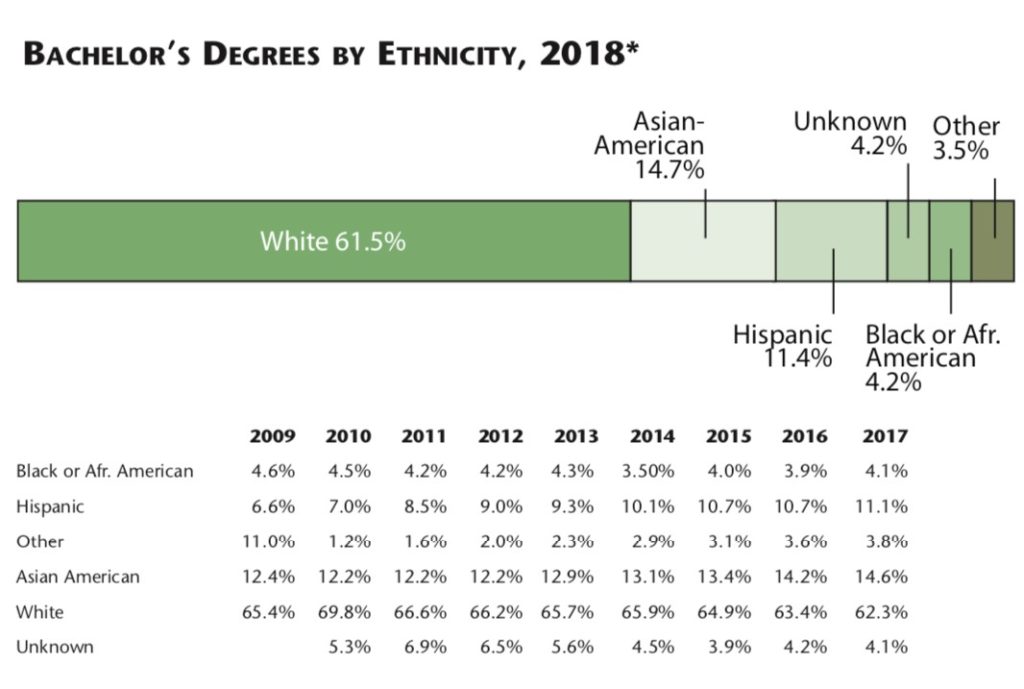
Recent national and international protests against police violence (sparked by the death of George Floyd in Minneapolis) and non-uniform justice for black people, has highlighted problems with institutional racism. The IEEE President, President-Elect and Past President made a short statement about their opposition to hatred and discrimination: “IEEE is, and remains, strongly committed to diversity, equity, and inclusion and we see no place for hatred and discrimination in our communities.”
Likewise, the three IEEE-USA Presidents (current, elect and past) have released their own response to the protests: “Building on IEEE’s global commitment to diversity, IEEE-USA is also strongly committed to the principles of equity and inclusion. As Americans, we see no place for hatred and discrimination. The senseless death of George Floyd and other recent tragedies have brought into sharp focus fundamental problems that are deeply ingrained in our society and that must be addressed. As a community of technical professionals, we will listen and learn, and commit ourselves to find solutions.”
Furthermore, 15 previous IEEE Presidents released a statement sharing their sympathy and support for peaceful protesters, and to support the right for peaceful assembly and protests. In the statement, they say that “…unless the ongoing malignancy of racism, explicit or implicit, is confronted actively, our commitments as professionals and as human beings to the welfare and safety of our communities cannot be met – in our schools, workplaces, voluntary associations, public institutions, and our government.”
The past Presidents’ statement calls for action by IEEE members: “Every year, when they renew their membership, IEEE members recommit themselves to the highest ethical and professional conduct; to hold paramount the safety, health, and welfare of the public; to treat fairly all persons; and to refrain from acts of discrimination based on race, religion, gender, disability, age, national origin, sexual orientation, gender identity, or gender expression. This commitment, and the status of IEEE members as leaders and educators in numerous civic organizations, corporations, schools, and communities, obligates us to recognize acts of discrimination, segregation and bigotry, and to oppose them actively.”
While we can support demonstrations against unequal treatment (and perhaps participate in them), there are also things that we can do as IEEE members to improve diversity and inclusion within our profession and increase opportunities for all people to participate in our technological future.
Technology can benefit all, and all can participate in the creation and use of technology to improve the human condition and that of the world around us. The complexity of the technical and social problems that face us demand insights and creative solutions from all humans. In addition, technology can create new wealth, and being engaged with technology can help people from any background to make a better life for themselves and their families.
Unfortunately, opportunities to learn about and engage in technology are not the same for all groups of people. According to U.S. Census estimates of the U.S. population on 1 July 2019 the U.S. Black or African American population was about 13.4% and the Hispanic or Latino percentage was about 18.3%. Information about the ethnic background for U.S. engineers can be compared to the distribution of the general U.S. population, to see the disparities for participation in technology education and professional participation.
The data below on Engineering Bachelor Degrees from 2009 through 2017 from the American Society for Engineering Education (ASEE) shows that Black or African American graduates has remained at about 4% of the total over several years, and may have declined in percentage a bit since 2009.

Hispanic or Latino graduate percentages have done somewhat better, increasing from less than 7% in 2009 to about 11% in 2017, but this percentage is still less than the overall Hispanic/Latino 2019 estimated U.S. percentage of 18.3%.
The 50k coalition says that the US now produces about 93,000 engineers per year at the bachelor degree level, of which only 30,000 are from underrepresented minority populations or are women.” Their goal is 50k underrepresented minority and women engineering graduates annually by 2025. The pie chart below, from the National Science Foundation, National Center for Science and Engineering Statistics, IPEDS Completions Survey by Race, 1977-2014, shows a breakdown for the percentage of graduating engineers by gender and ethnicity. Only 14% of the engineers are women (versus about 50% of the US population), Black engineers are given at 4.2% and Hispanic/Latino engineers at 10.4%.

We can see that there is a significant disparity in minority and women’s participation in technology professions, such as engineering. IEEE-USA and U.S. IEEE members should be at the forefront of bringing under-represented populations into the engineering and technology professions. In addition to adding to our engineering and technologist diversity, increasing the number of women and minorities in the technical professions could also help increase U.S. IEEE membership, which has been declining over the last 20 years.
My next blog will discuss ways that we can create a more diverse and vibrant technical profession, that can help us address the daunting technical issues that face our society and increase the overall prosperity and opportunities of our members from all walks of life and all backgrounds. Together, we can make a better world!
Tom Coughlin is president of Coughlin Associates, and served as 2019 IEEE-USA President. He is a widely respected digital storage analyst and business/technology consultant with more than 35 years in the data storage industry. Dr. Coughlin has many publications and six patents to his credit. He is the author of Digital Storage in Consumer Electronics: The Essential Guide, and he publishes the Digital Storage Technology Newsletter, the Media and Entertainment Storage Report and other industry reports. Tom is also a regular contributor on digital storage for Forbes.com and other blogs.







Excellent article, Tom. I look forward to your next installment. Thanks.